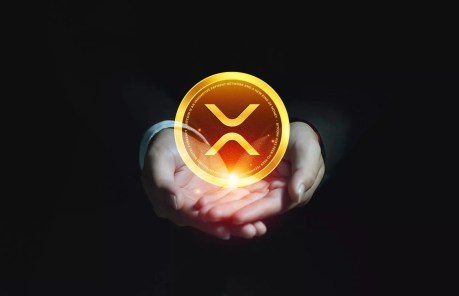Reason to trust

How Our News is Made
Strict editorial policy that focuses on accuracy, relevance, and impartiality
Ad discliamer
Morbi pretium leo et nisl aliquam mollis. Quisque arcu lorem, ultricies quis pellentesque nec, ullamcorper eu odio.
Push Chain,, an L1 blockchain designed for universal applications, has announced the launch of its Public Devnet and developer SDK.
The chain pioneers in shared state blockchain tech that lets any user interact with apps on any chain (chain abstraction).
It is a significant milestone in its mission to shift web3 from its current fragmented state to a land of seamless composability enabling developers to create universal apps compatible with all chains. With this launch, the Push team welcomes developers to explore, learn and build universal apps on its novel architecture as it moves closer to its mainnet.
Push is poised to solve the problem of fragmentation of several L1s, L2s and L3s and become the leading universal hub for scalable, cross chain, wallet abstracted (normie user friendly) web3 applications (apps).
Solution of unifying Ethereum and all of web3 lies in abstracting chain, wallet and fees for the user enabling universal app experiences for any user on any chain or on any wallet. (Harsh Rajat, Founder, Push Chain)
Universal Dapps: Unchained, Unified, Unlimited
The current state of web3 is heavily siloed, with multiple L1s, L2 and L3s operating their own distinct ecosystems. For both users and builders this creates barriers to realising a frictionless web3. Push’s goal is to build infrastructure that enables ‘universal applications’ which can leverage the power and promise of web3 as a whole.
App builders now have access to a sandbox environment with a quickstarter snippet and complete technical documentation to test these features. It also contains powerful examples — such as Rumors, DCA (dollar cost averaging) and Email — which showcase the unique capabilities like transactions from any chain, shared state and instant finality of the chain with more in the works – universal chess, universal poker, universal dex, etc.
Moreover, builders can explore how to integrate Push’s native point-system within their apps in order to gamify and/or reward certain behaviours. Together with the software development kit (SDK) and a user interface (UI) kit, the launch offers a ready-to-hand toolbox for understanding and building on Push Chain.
For those unfamiliar with the project, Push’s architecture has been thoughtfully designed with consumer applications in mind.
Some of its key features include:
- Chain-agnostic identities and transactions: support for addresses from all major chains, ensuring universal compatibility.
- Social logins: a secure and easy to use wallet-creation process, unlocking mass adoption.
- Ecosystem abstraction: a combination of fee, wallet and chain abstraction, allowing developers to build across EVM and non-EVM ecosystems simultaneously.
- Consumer and Financial transactions: a new type of transaction (unordered) optimized for non-financial, high-throughput applications, can be combined with traditional financial transactions (ordered).
- True scale: sub-second finality powered by parallel validators and dynamic sharding.
- Shared State and Universal Smart Contracts: ability to read data from its own chain as well as supported external chains, enabling universal use-cases.
Novel Use-cases
With Push Chain’s software development kit developers can interact with the network and leverage its features with ease. They will not only deploy cross-chain functionalities but develop novel use-cases such as combining an NFT marketplace on Solana with a prediction market on Polygon. Developers will be able to plug in their favorite web3 library, viem/ethers, or non-EVM ones to initialize the SDK and transact from Ethereum or Solana.
This ‘universality’ will also allow AI agents to hop across ecosystems with ease. With the ‘shared state’ approach developers will be able to read the state of multiple blockchains and connect them to a single user, allowing agents to develop a more unified context around intents and user-behaviours. This will allow Push to become the backbone for universal AI agents, which can lead to interesting experiments such as user-owned agent-avatars.
A simple example of a universal app could be a chess interface in which the players turn their games into universal NFTs, i.e. accessible across all marketplaces. Since each chess game is unique, these NFT holders could be given the right to name a particular opening or variation after themselves, or create token-gated groups for secret puzzles. One could even have ‘cross-ecosystem game-nights’ such as Ethereum v. Solana, or Polygon v. Aptos with integrated prediction-markets. The possibilities are truly infinite.
If you are an app-builder and are excited by this vision, now is a great time to explore the possibilities that the v1 devnet offers. Also, keep an eye out for the launch of the incentivised devnet!
Resources and Community
- Public Devnet
- Developer Docs / SDK
- Social (X | Discord)



















